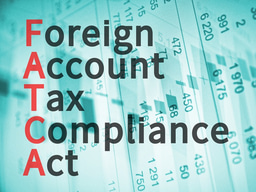How Can US Expats Catch Up With Their IRS Tax Filing?

America’s citizenship based taxation system is counter-intuitive, and many expats haven’t been filing US taxes because they weren’t aware that they had to.
The first step towards compliance is understanding the requirements.
American expats have to file if they earn over $10,000 (or just $400 of self-employment income) wherever in the world they live. They do however get extra time to file, until June 15th, with a further extension until October 15th available upon request.
Furthermore, there are some exemptions available that allow them to reduce or in many cases eradicate their US tax liability, with the aim of avoiding double taxation. In particular, the Foreign Earned Income Exclusion, which allows expats to exclude the first around $100,000 of their income from US tax, and the Foreign Tax Credit, which gives a $1 tax credit for every dollar of tax paid abroad, can be claimed when expats file their federal return.
This is an important point to make, that expats still need to file a return even if, having claimed one or more of the available exemptions, their tax liability is zero.
Some expats may also have to file state taxes, normally depending on which state they last lived in and whether they intend to return there, though the rules can vary state by state.
Finally, expats who have over $10,000 in foreign bank or investment accounts, including the balances of accounts they control such as a business account, are required to file an FBAR (Foreign Bank Account Report), declaring all their foreign accounts along with maximum balances during the tax year.
FATCA
While Americans living overseas have always been required to file and pay US taxes, it wasn’t until the last few years that it has been risky not to.
FATCA, the Foreign Account Tax Compliance Act, was passed in 2010 in response to the financial crisis and it compels foreign banks and other financial firms to report their American account holders details to Uncle Sam under threat of fines when they trade in US money markets. To date over 285,000 foreign financial institutions are complying.
This means that the IRS knows who should and shouldn’t be filing US tax returns and FBARs, including account holder contact details and account balances. This in turn means the IRS can now for the first time enforce tax filing among expats with fines.
Catching up
In the age of FATCA, as soon as expats become aware of their US filing obligations, they are well advised to take steps to become compliant at once.
The good news is that there’s an IRS amnesty program that allows expats to catch up on their tax and FBAR filing without facing any fines. It’s called the Streamlined Procedure, and to qualify you have to file your last 3 returns and your last 6 FBARs (as applicable), pay any back taxes due (often none, once you have claimed the exclusions that best suit your circumstances), and self-certify that your previous non-compliance was non-willful.
Seek help
Filing US taxes as an expat can be a daunting task, and not filing in the most tax efficient manner can prove expensive, so we strongly advice that if you have any questions or doubts regarding your US taxes, you consult an expat tax specialist.
With clients in over 150 countries worldwide, Bright!Tax is a leading provider of US expat tax services to the estimated 9 million Americans living overseas. Bright!Tax was recently named 2017 Tax Provider of the Year at the FEM Americas EMMAs on Denver.





Please sign in or register for FREE
Sign in OR sign up to become a registered The Forum for Expatriate Management website user
Subscribe here
Thanks for sharing